
A family trying to host a camp barbecue on a picturesque Australian island received unexpected visitors – they were surrounded by dozens of huge robber crabs. The vicious-looking animals, also known as coconut crabs, can grow up to three feet in length and have an excellent sense of smell.
While an unsuspecting family was enjoying a freshly cooked barbecue while camping on a secluded Christmas Island in the far northwest of Western Australia, crabs gathered around them in search of food. Despite their terrifying appearance, crabs are completely harmless, but (as their name suggests) they often steal food from campsites.
The family took a series of fantastic photos showing more than 52 crabs eagerly awaiting their chance to grab some scraps of food.
Crabs eagerly await food.
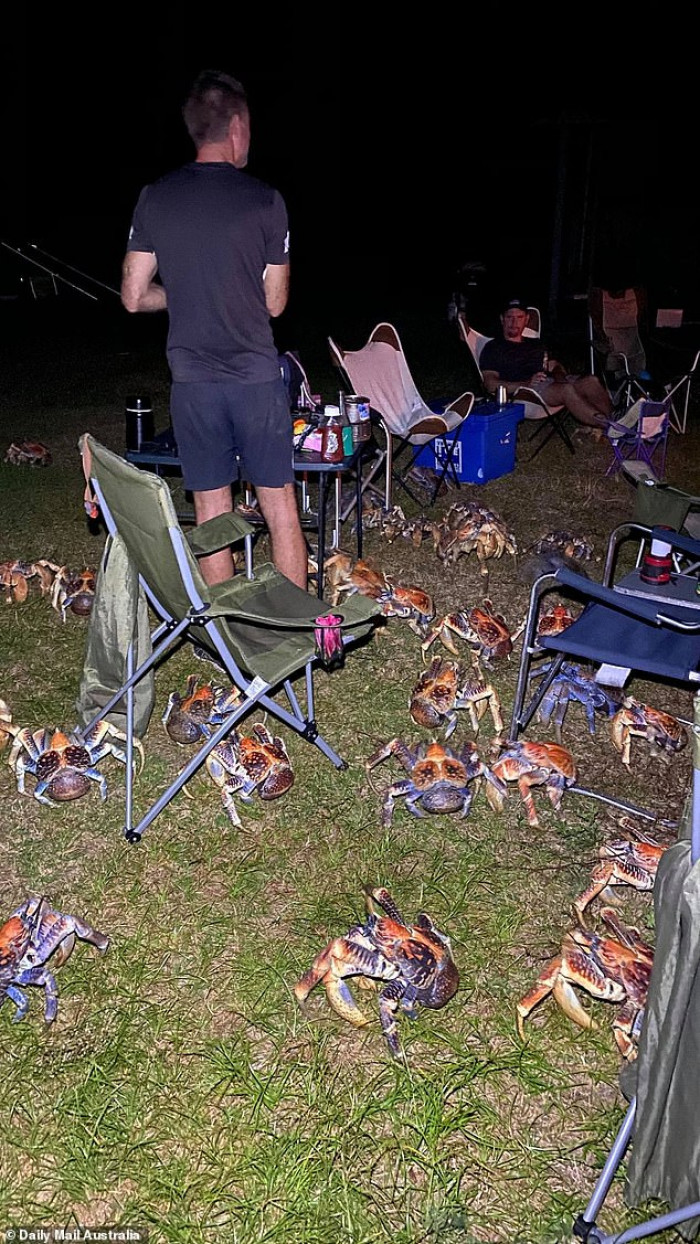
Winter McKendrick looked calm as the huge crabs surrounded her.
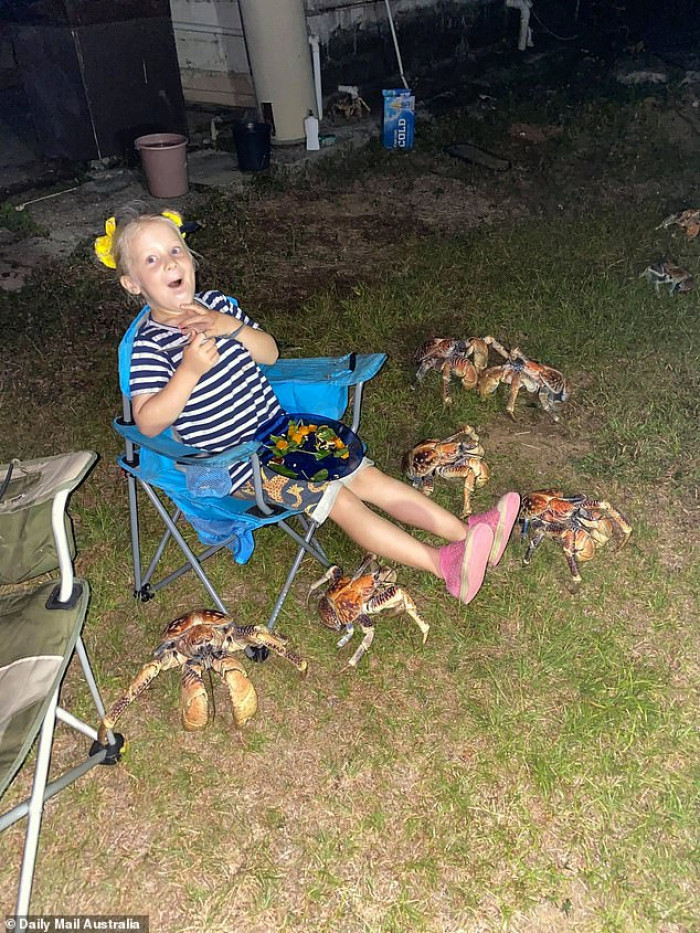
A camping trip barbeque became a struggle to keep 50 robber crabs away from food.
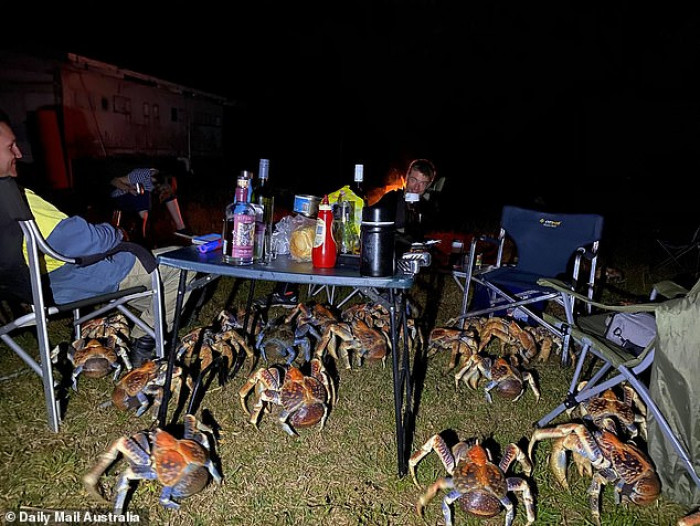
Winter McKendrick, a little girl from one of the families on the tour, looked quite calm as the huge crabs surrounded her as she ate dinner. One brave crab was photographed climbing onto the edge of a table to gain better access to its food…
Amy Luetich lived on Christmas Island with her family for several years, and they, along with several other families, camped in the jungle of a part of the island called Grant’s Well. “We have camped in this area several times and have never seen so many robbers,” Ms. Luetich told reporters.
She said there were about 20 people under the tree when they arrived. “But as soon as we started cooking, they surrounded us. My son counted 52 pieces,” said the deputy director.
One of the crabs scaled the table.
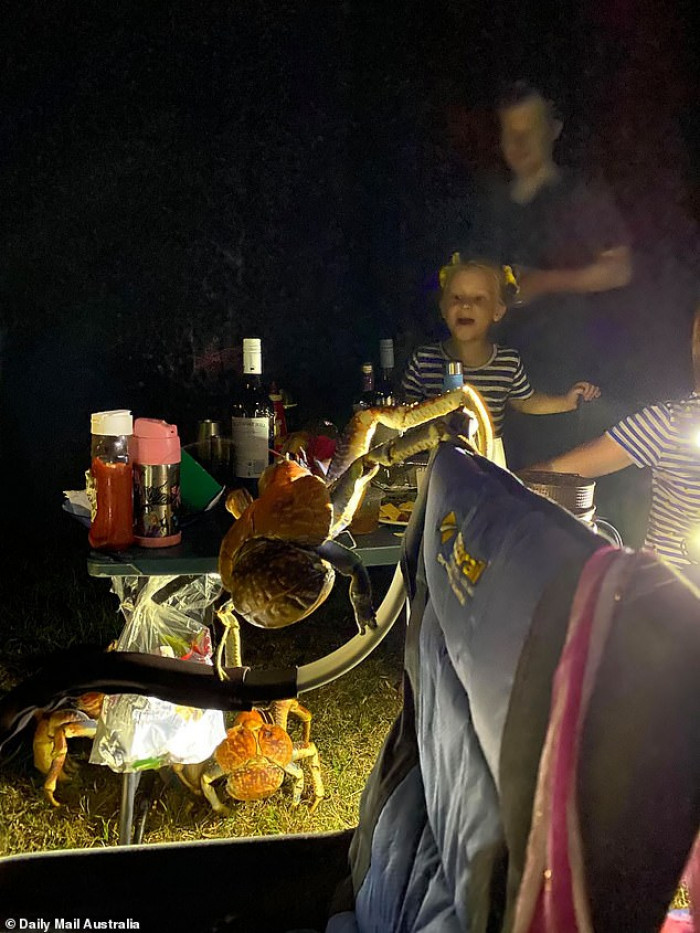
One of the crabs even climbed on top of the barbecue.
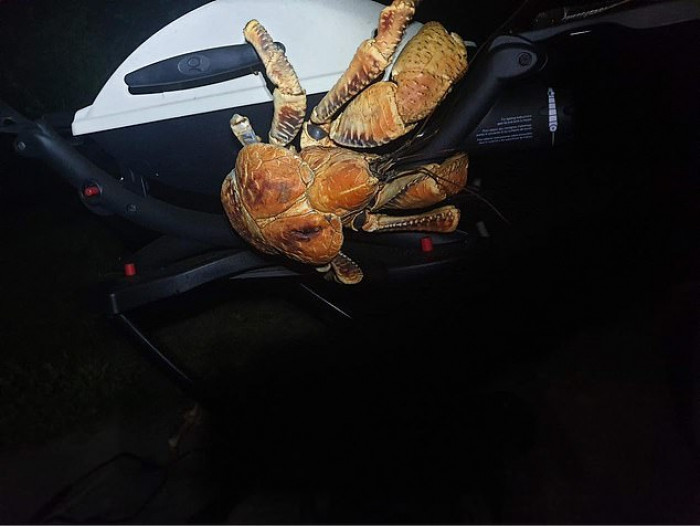
Robber crabs got their name because of their habit of stealing things from campsites.
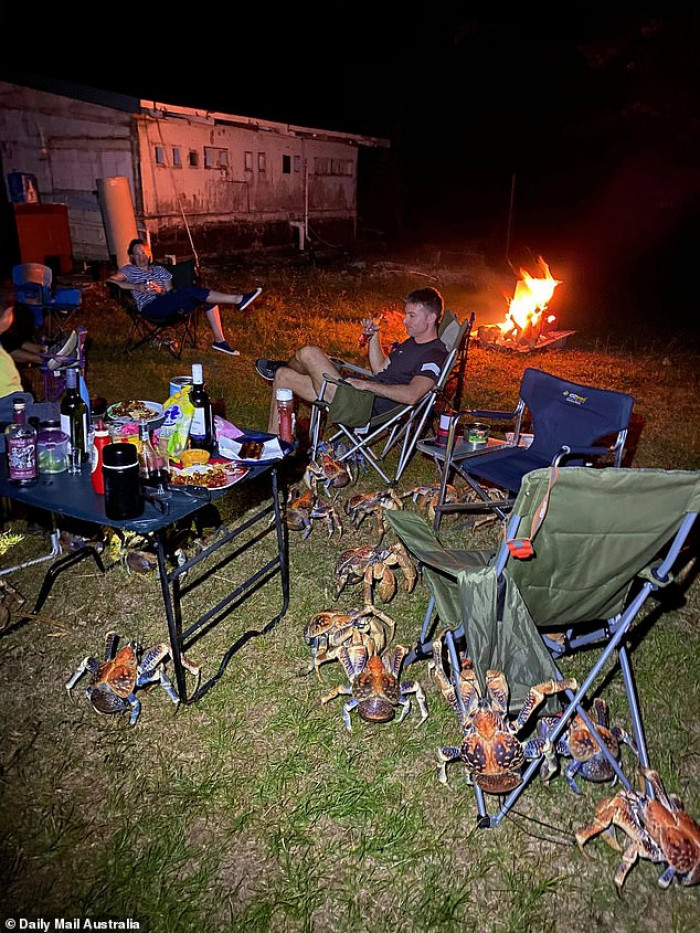
Jacob Tiernan-Luetich had an important job – he was assigned to keep the giant crabs away from food.
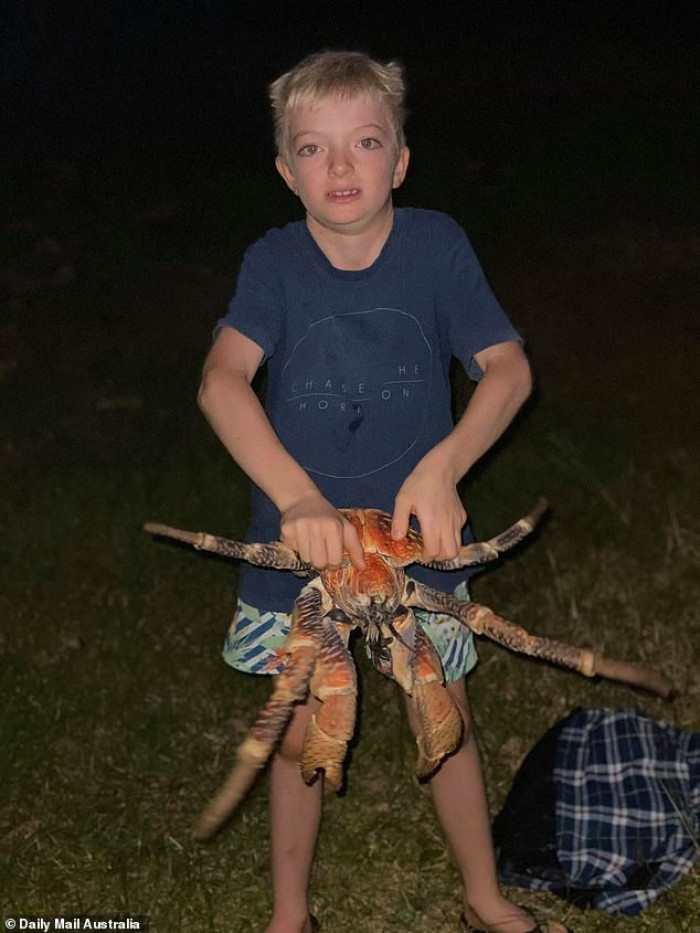
“His job was to pick them up and take them away from where we were eating. He liked it.” She explained that they were used to seeing robber crabs because they lived on Christmas Island for some time.
“Then they started walking up to the table and the other one climbed onto the barbecue,” Ms Luetich said. “We kept the tents away from where we ate, but one of the families said they felt banging noises from outside their tent all night.”
The photos were posted on the Christmas Island Tourism Facebook page with the caption: “Robber crabs behaving badly! A couple of local Christmas Island families had a few extra mouths to feed at the weekend barbecue.”
“Coconut crabs have an incredible sense of smell, and for slow-moving creatures, they move very quickly when food is nearby.”
Soon people began commenting on the post, many of them describing their own encounters.
“One night I lost my sneakers because of these buggers. Couldn’t find the one-legged robber crab,” one person joked.
Another person said: “They are like puppies. We hung out at Dolly Beach, feeding them coconuts. So cute!”
But some people weren’t thrilled with these crabs. “This makes me feel uncomfortable,” one person commented.
Christmas Island is home to the largest population of robber crabs on Earth.
Robber crabs are delicious, a cross between mud crab and lobster. Although they are a delicacy with aphrodisiac properties in the Pacific, they are a protected species in Australia and cannot be hunted.
Visitors are warned that robber crabs can move quickly when they smell food. Tourists are advised to hang their food from a tree – especially at Dolly Beach.
Drivers are also asked not to drive fast as they could hit the crab. Visitors are told that robber crabs are “protected and respected” on this island.
Christmas Island is also home to 25 million red crabs.
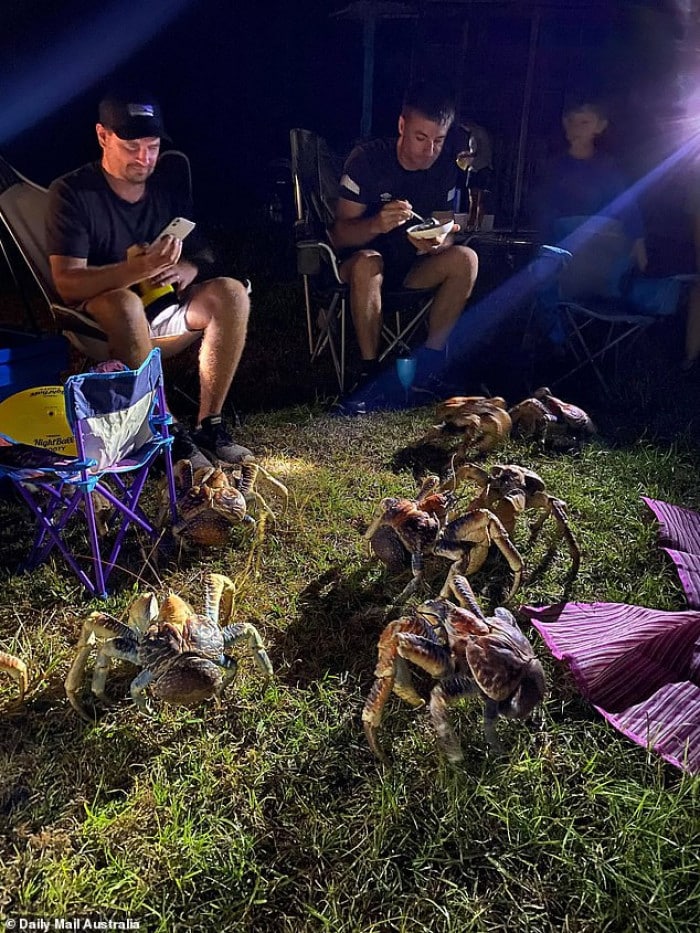
Robber crabs are the biggest land crustaceans in the world.
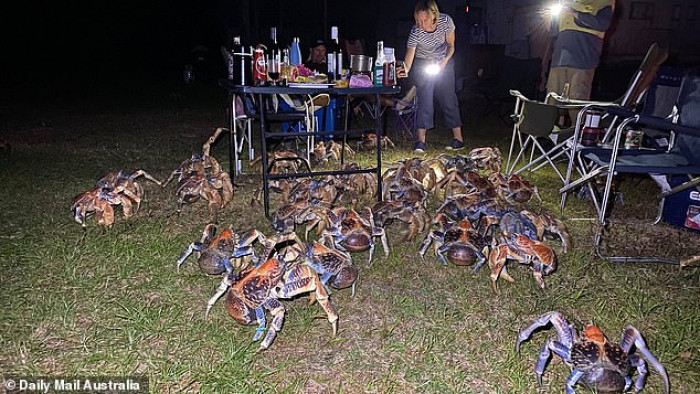
Singapore previously owned Christmas Island, but they transferred ownership to Australia in October 1958
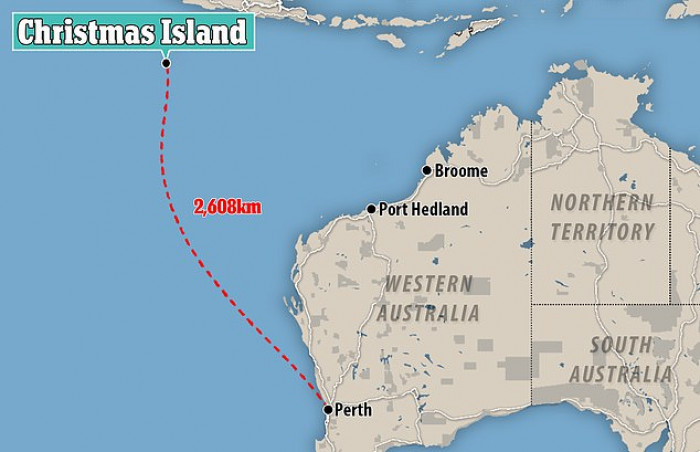
Christmas Island was previously owned by Singapore, but in October 1958 they transferred ownership to Australia. Christmas Island is best known for its spectacular wildlife.
Twenty-five million red crabs live here. They remain on land until they move to the ocean to reproduce, and then the newborns return to land.
Another distinctive feature of the island is the whale sharks that hang out nearby.
H/T:dailysquared
Read More:20 most Beautiful Cats in the World Worth Melting for